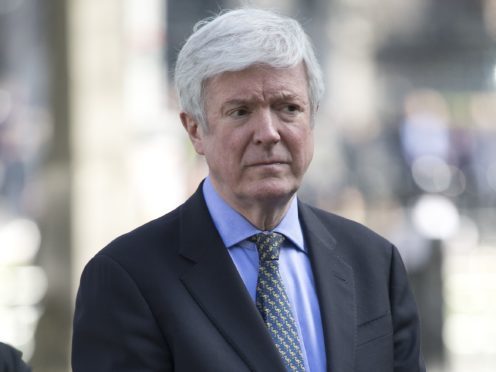The BBC must extend the work of its teams assembled to debunk deliberately misleading and false stories in the battle against fake news, the director-general has said.
Giving the inaugural Satchwell Lecture to the Society Of Editors, Lord Tony Hall said the Reality Check teams will operate more extensively on air and online.
He said: “We won’t just talk about the challenges and distortions of fake news. This year we’ll take them on directly.
“We’re going to fight, publicly and globally, for news that people can trust and rely on.
Boris Johnson cited examples of “nonsense” from Brussels like considering a ban on selling eggs by the dozen – was he right?https://t.co/ktZ6m4XRge pic.twitter.com/7urv6tPKEW
— BBC Reality Check (@BBCRealityCheck) October 2, 2018
“First of all, I want us to focus on the quality of the evidence.
“And to tell audiences where there is an overwhelming consensus based on evidence and expert analysis of it.
“Of course, we must reflect contrary opinions, but I want us to show a proper degree of scepticism when there is a strong body of evidence that points to the contrary.
“The idea of fact checking started decades ago in America.
“It’s turned out to be one of the great tools for any journalist, particularly in an age where people are increasingly willing to use, and abuse, statistics to advance their own causes, regardless of the facts.
“So, I want the BBC to extend the work of its dedicated Reality Check teams, on air and online.”
Does America pay too much to the UN? pic.twitter.com/VXTFNHkZUF
— BBC Reality Check (@BBCRealityCheck) September 25, 2018
Lord Hall said the BBC will shift focus to reporting on why things happen, and not just what happens, adding: “We want to explain the world around us, not simply report on it, and help set the record straight when people and institutions play fast and loose with the evidence.”
The BBC has already launched a programme with schools to support young people in identifying real news and filter out fake or false information.
This project will now roll out in Africa and India, Lord Hall said.
The director-general also called for a renewed focus on the integrity of news and information across all BBC output.
He told the society: “I don’t believe you enlighten people by allotting equal airtime to well-evidenced argument on the one hand, and to unsubstantiated assertion on the other.
“An astronaut who has gazed down on the curvature of our Earth from outer space needs to be taken more seriously than some guy with a blog who still maintains that it’s flat.
“There are objective facts, and then there are theories, some but not all of which may turn out to have credibility.
“Now, as Brexit negotiations reach boiling point we need to be ever more scrupulous in looking at past evidence, and the past record of those predicting different futures.”
Lord Hall said the media have a duty to instil public confidence in journalism in the battle against fake news, telling the society: “We must hold our collective nerve and keep doing what’s right.
“We must all, national and local, broadcasters and newspapers, re-commit ourselves to discovering and telling the truth as far as we can.
“We need to check and double-check our sources.
“Every publisher and every journalist has made mistakes but, in an age when any mistake is portrayed as evidence of an intention to mislead, we must re-double our efforts to get it right first time and be open and generous about it if we get things wrong.
“We need to do everything we can to combat any suggestion that we peddle fake news.
“And here I’d like to enter a plea.
“The ‘fake news’ label is too dangerous for us to bandy about unthinkingly.
“I’m sorry to say that does happen occasionally.
“An honest mistake, honestly admitted to, and corrected, is not the same as fake news.”
Lord Hall also warned against undermining the BBC’s reputation for political ends, saying they should “be careful what they wish for.”
He said: “The political divisions that have opened up in recent years, on the Scottish referendum, of course, but most notably on Brexit, have led some politicians to try to portray the BBC as being in sustained opposition to their particular cause.
“In reality we are in opposition to no-one, and we’re there to support no-one, except our audiences.”
He added: “Nothing will shake our determination to report what we find, and to put claims and counter-claims into a context that helps audiences understand and assess them.
“The danger is that casual political accusations cost trust in all of us. And we lose the public’s trust at our peril. “
